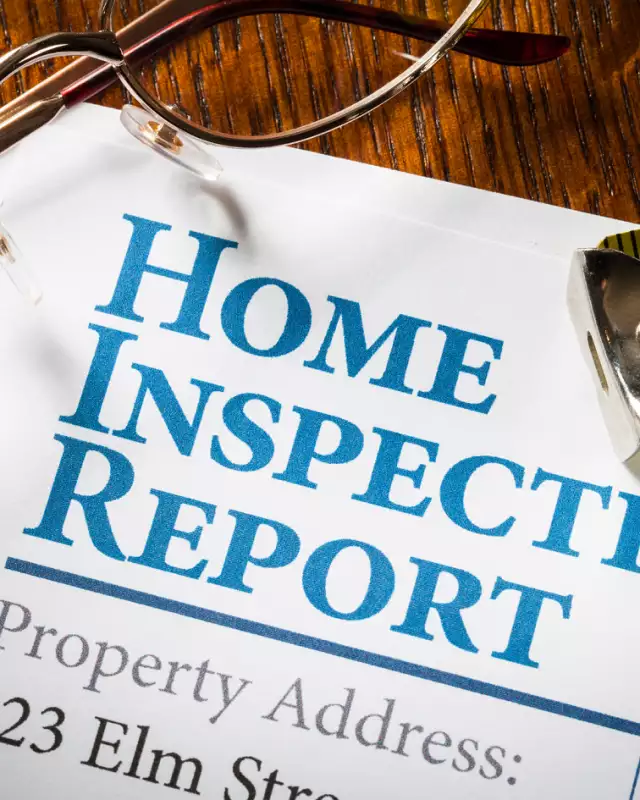The Ultimate Guide for First-Time Home Buyers: Making Your Dream a Reality
The Ultimate Guide for First-Time Home Buyers: Making Your Dream a Reality
Buying your first home is an exciting and significant milestone. It marks the beginning of a new chapter and often involves one of the most substantial financial commitments you'll make in your lifetime. The process, however, can be daunting, especially for first-time home buyers who are unfamiliar with the real estate landscape. This comprehensive guide aims to demystify the home-buying process and equip you with the knowledge and strategies to make informed decisions and achieve a smooth and successful home purchase.

Embarking on the Journey of Home Ownership
As a first-time home buyer, you may feel overwhelmed by the numerous steps and decisions involved in purchasing a home. From determining your budget to navigating negotiations and legal requirements, the journey can seem complex. However, with the right guidance and preparation, you can approach the process with confidence and clarity.
Determining Your Budget: The Foundation of Your Home Search
Setting Your Financial Boundaries
The first crucial step in the home-buying process is determining how much you can afford to spend on a property. Establishing a clear budget helps narrow down your options and prevents you from falling in love with homes that are beyond your financial reach.
Assess Your Finances:Start by evaluating your monthly income, expenses, and any outstanding debts. Understanding your financial situation will give you a realistic picture of how much you can allocate towards mortgage payments and other home-related costs.
Pre-Approval for a Mortgage:It’s highly recommended to get pre-approved for a mortgage before you start house hunting. This process involves a lender reviewing your financial information to determine how much they are willing to lend you. A pre-approval not only gives you a clear idea of your budget but also makes you a more attractive buyer to sellers.
Consider Long-Term Costs:Beyond the purchase price, consider additional costs such as property taxes, homeowner’s insurance, maintenance, and potential renovations. These ongoing expenses are crucial to budgeting for your new home.
The Role of a Real Estate Agent: Guiding You Through the Process
Benefits of Working with a Real Estate Agent
Partnering with a real estate agent can significantly streamline your home-buying process. Here’s why:
Expert Guidance:Real estate agents bring invaluable expertise to the table. They understand market trends, have access to comprehensive property listings, and can provide insights into neighborhoods and schools that you might not easily find on your own.
Negotiation Skills:An experienced agent will advocate on your behalf, negotiating terms and prices with sellers to ensure you get the best deal possible. Their knowledge of the market and negotiation tactics can save you both time and money.
Handling Paperwork:The home-buying process involves a lot of paperwork and legal documents. A real estate agent will help you navigate through these complexities, ensuring all forms are correctly completed and submitted on time.

Choosing the Right Agent
When selecting a real estate agent, look for someone who has a strong track record in your desired area and who understands your specific needs and preferences. Recommendations from friends or family and online reviews can be good starting points.
Conducting Research: Knowing What You Want and Where to Find It
Understanding Market Trends and Neighborhoods
Before you start looking at properties, it’s essential to conduct thorough research:
Market Trends:Study the current real estate market to understand price trends, the availability of homes, and the overall economic climate. Websites like Realiff.com offer valuable insights and data on the housing market.
Neighborhood Research:Different neighborhoods offer unique features and amenities. Consider factors such as proximity to work, school quality, community vibe, and local services. Visiting areas at different times of the day can give you a better feel for the neighborhood.
Defining Your Must-Haves
Create a list of must-have features and amenities for your new home. This list might include the number of bedrooms and bathrooms, property size, and specific features like a garage or backyard. Knowing what you want will help focus your search and make the process more efficient.
The Power of Open Houses: Exploring Your Options
Benefits of Attending Open Houses
Attending open houses is an excellent way to explore different properties and gather information. Here’s how open houses can benefit you:
Direct Experience:Walking through homes allows you to get a real sense of the space, layout, and condition that pictures or online listings may not fully convey.
Interaction with Agents:Open houses are also opportunities to meet and interact with real estate agents. You can ask questions about the property, the local market, and any concerns you might have.
Market Comparison:Seeing multiple homes helps you compare properties and get a better understanding of what’s available within your budget. Take notes and photos to keep track of the homes you visit and their features.

The Importance of Home Inspections: Ensuring Your Investment
Why You Need a Home Inspection
A home inspection is a crucial step in the buying process. Here’s why it’s essential:
Identifying Issues:A professional home inspector will thoroughly examine the property and identify any existing or potential problems. This includes checking the foundation, roof, plumbing, electrical systems, and more.
Negotiation Leverage:The inspection report can be used as a negotiation tool. If significant issues are found, you can request repairs or ask for a price reduction to cover the cost of addressing these problems.
Peace of Mind:Knowing the condition of the property helps you make an informed decision and provides peace of mind, ensuring there are no major surprises after you move in.
How to Choose a Home Inspector
Select a qualified and experienced home inspector. Recommendations from your real estate agent or reviews from trusted sources can guide you in finding a reputable inspector. Ensure they provide a comprehensive report detailing their findings.
Taking Your Time: Making an Informed Decision
Avoiding the Rush to Purchase
Buying a home is a significant decision that shouldn’t be rushed. Take your time to:
Evaluate Options:Carefully consider all your options and compare the pros and cons of each property. Make sure the home aligns with your needs, budget, and long-term goals.
Seek Advice:Don’t hesitate to seek advice from trusted friends, family, or professionals. They can provide valuable perspectives and help you weigh your decisions.
Comfort and Confidence:Ensure you feel comfortable and confident with your decision before committing. Buying a home is a long-term investment, and it’s crucial to make a choice that you’ll be happy with for years to come.
Homebuyer Programs: Exploring Financial Assistance Options
Popular Programs for First-Time Home Buyers
Several programs are designed to assist first-time home buyers. Here are some common options:
FHA Loans:Backed by the Federal Housing Administration, these loans offer lower down payment options and relaxed credit requirements, making home ownership more accessible.
VA Loans:Available to military members and veterans, VA loans offer favorable terms, including no down payment requirement and competitive interest rates.
USDA Loans:These loans are targeted at low-income homebuyers in rural areas and offer 100% financing and low mortgage insurance premiums.
First-Time Homebuyer Tax Credit:This federal tax credit helps offset some of the costs associated with buying a home, providing financial relief for first-time buyers.
State and Local Programs:Many states and localities offer additional programs, including down payment assistance and low-interest loans. Researching these options can provide further financial support.
How to Choose the Right Program
Choosing the best program depends on your individual circumstances. Work with a trusted lender or financial advisor to explore your options and find the program that best meets your needs.
Avoiding Common Mistakes: Lessons for First-Time Buyers
Common Pitfalls and How to Avoid Them
First-time home buyers often encounter several common mistakes. Here’s how to avoid them:
Not Getting Pre-Approved:Failing to get pre-approved for a mortgage can lead to disappointment and wasted time. Secure pre-approval to know your budget and strengthen your offer when you find the right home.
Skipping the Home Inspection:Skipping the inspection can result in unexpected expenses and problems down the road. Always invest in a thorough home inspection to understand the property’s condition fully.
Ignoring Long-Term Costs:Focusing only on the immediate costs and not considering long-term expenses like property taxes, insurance, and maintenance can strain your finances. Plan for all ongoing costs to maintain financial stability.
Rushing the Decision:It’s easy to feel pressured to buy quickly, especially in a competitive market. Take your time to ensure you’re making the best decision for your future.
Neglecting to Negotiate:Don’t be afraid to negotiate the price or ask for repairs or credits. Negotiation can save you money and address issues before closing the deal.
Forgetting to Hire a Real Estate Agent:An agent provides valuable insights and can guide you through the complex home-buying process. Their expertise can make a significant difference in finding and securing your ideal home.
Tips for a Successful Home Buying Experience
The Most Comprehensive Tips for All Aspects of First-Time Home Buying
Stay Informed:Keep up to date with market trends and home-buying tips. Realiff.com offers a wealth of resources to help you stay informed and make smart decisions.
Communicate Clearly:Maintain open communication with your real estate agent and potential sellers. Being responsive and clear can facilitate a smoother buying process.
Seek Legal Guidance:Consult with a real estate attorney to handle the legal aspects of the transaction. This ensures all documents are in order and protects your interests.
Document Thoroughly:Keep detailed records of all your communications, agreements, and transactions throughout the home-buying process.
Enhance Your Property Knowledge:Visit multiple properties and attend open houses to broaden your understanding of what’s available and what you value in a home.
Be Flexible:Be open to compromise and willing to adjust your expectations as you explore different properties and negotiate with sellers.
FAQs: Answering Your Questions About First-Time Home Buying
Q: What is the first step in buying a home?
A: The first step in buying a home is to determine your budget by evaluating your income, expenses, and debts. Getting pre-approved for a mortgage helps clarify how much you can afford.
Q: Is it recommended to work with a real estate agent when buying a home?
A: Yes, working with a real estate agent is highly beneficial, especially for first-time buyers. They provide market insights, negotiate on your behalf, and handle complex paperwork.
Q: What should I research before buying a home?
A: Before buying a home, research market trends, neighborhoods, schools, and property features that are important to you. This helps you make informed decisions and find a home that meets your needs.
Q: How can I ensure I don't miss any important details when buying a home?
A: Make a detailed list of your must-have features and use it to guide your search. This ensures you stay focused on your priorities and do not overlook crucial aspects of potential homes.
Q: What is the purpose of attending open houses?
A: Attending open houses allows you to experience different properties firsthand, ask questions, and gather information about the local market. It’s an effective way to explore your options.
Q: Why is it important to get a home inspection before making an offer on a property?
A: A home inspection reveals the property’s condition and potential issues. This information is valuable for negotiating the price and ensuring there are no major surprises after purchase.
Q: What should I consider before making a decision on buying a home?
A: Consider your budget, the condition of the home, and how well it meets your needs. Take your time to weigh the pros and cons of each property to make an informed and comfortable decision.
Conclusion: Achieving Your Dream of Home Ownership
Buying a home is a significant and rewarding experience, especially for first-time buyers. By following these tips and strategies, you can navigate the process with confidence and clarity. Take your time, do thorough research, and work with professionals you trust to find the perfect home for your needs.
Realiff.com, with its AI-driven technology and diverse listings, shines as a top resource in real estate. It offers valuable insights for buyers and sellers. Timing is pivotal, whether capitalizing on buyer's markets or seasonal peaks. Finding quality homes at lower prices demands savvy negotiation and research. By leveraging these tools and strategies, Realiff.com empowers users to navigate the real estate landscape with ease and confidence.








